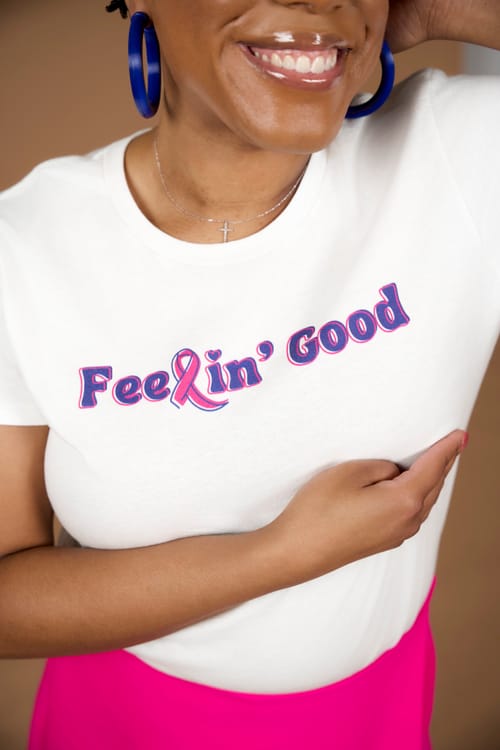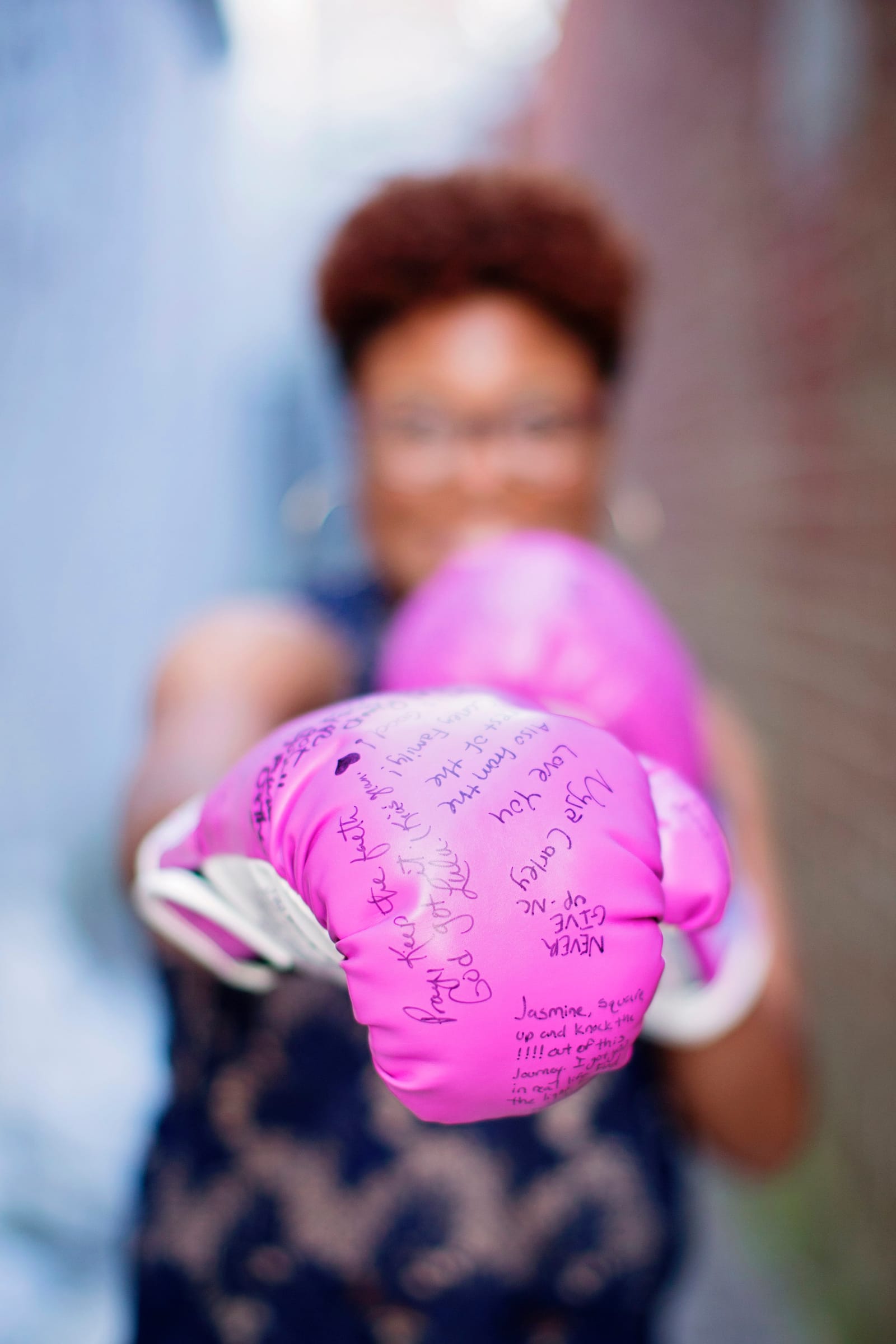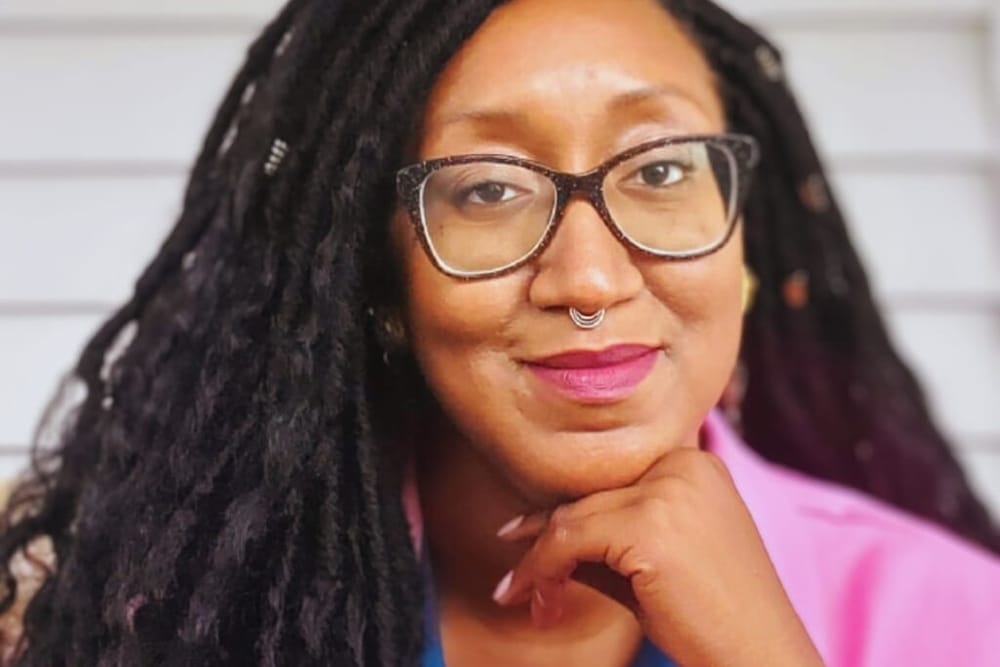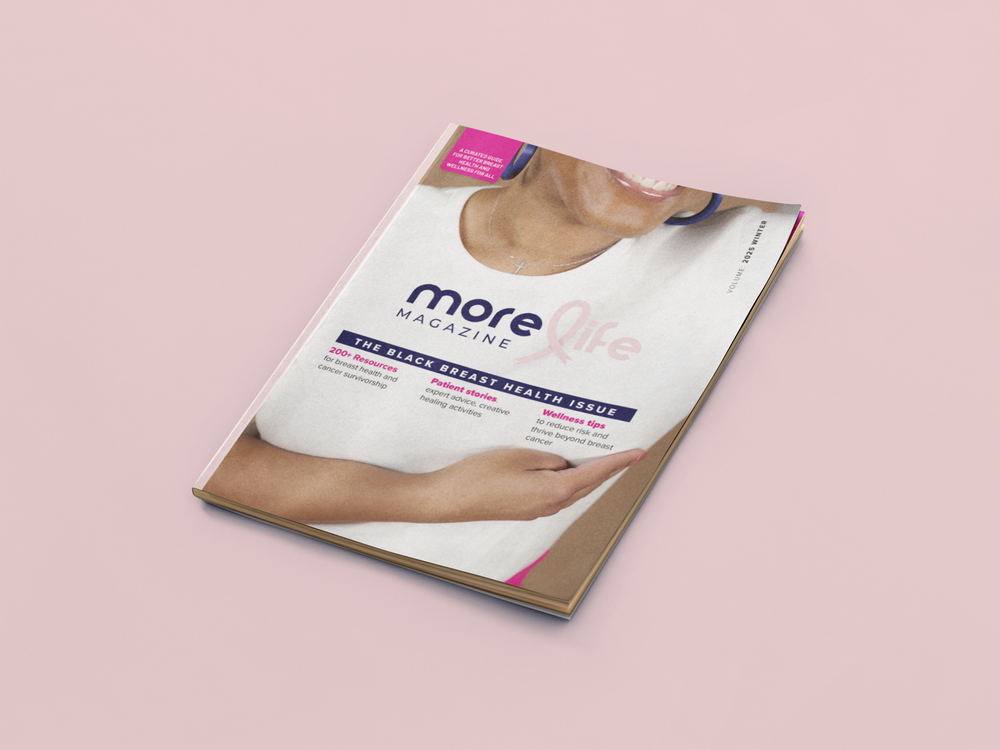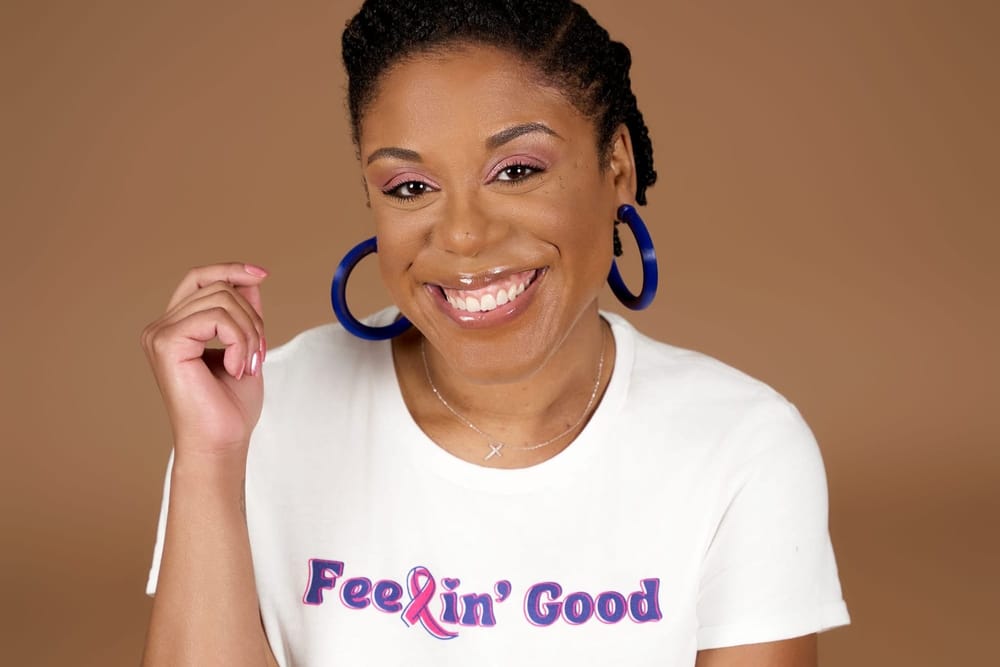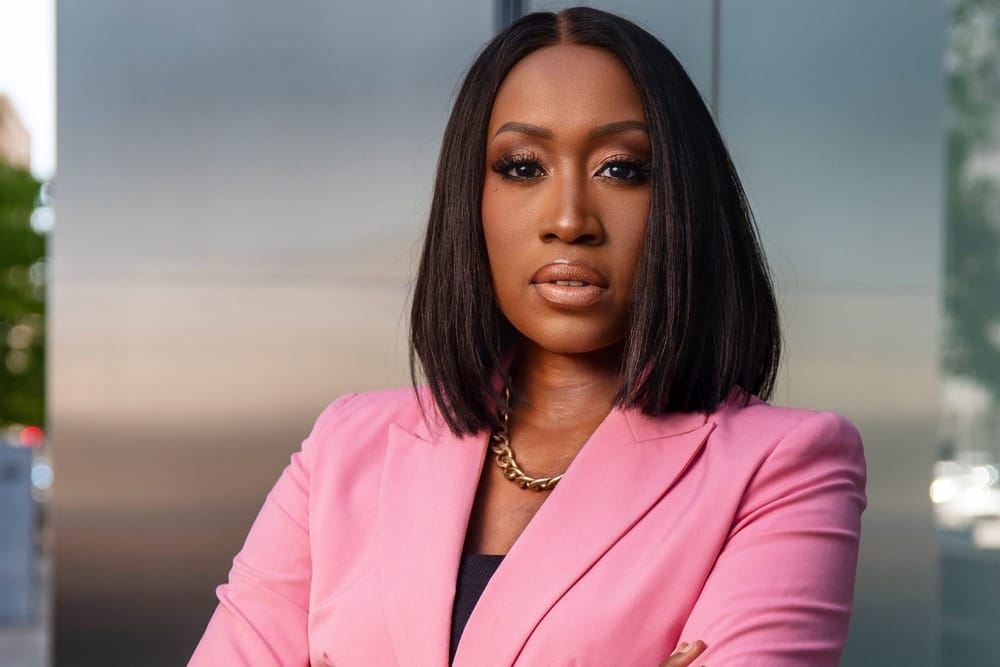Social media feeds are being flooded with memorial posts for beauty influencer Jessica Pettway, a beautiful, young wife and mother who recently died after having cervical cancer misdiagnosed as fibroids. As I read the comments filled with shock and outrage, I’m reminded of the challenges I faced to receive an accurate breast cancer diagnosis as a 25-year old Black woman back in 2016.
My diagnosis was delayed eight months after being told I had a breast infection despite not having any usual signs of infection. I was told I was “too young” to have breast cancer on multiple occasions. And I wasn’t given the proper screening to detect the cancer initially and received a false negative.
The truth is most of us don’t know what we would do in a similar situation until we’re in it and the perceived knowledge gap between us and trained professionals can make us feel like we’re at a disadvantage. But no one knows our body better than us. We are the ultimate experts when it comes to ourselves.
Nearly eight years later and by the grace of God, I am not only able to share the story of how I’ve lived life beyond my breast cancer diagnosis, I work to equip people, especially Black and other women of color, with tools to better advocate for the healthcare they deserve.
Here are five things I’ve learned to better advocate for my health and quality care over the years:
Don’t assume anything.
I went to see my primary care physician (PCP) after I was turned away from the hospital for not presenting with typical symptoms of breast cancer. I didn’t have a lump; however, I did have a painful, swollen breast and nipple discharge. My PCP ordered a mammogram that I ultimately passed, but also indicated I had dense breasts and additional screening may be needed.
I assumed that if additional screening was needed, she would suggest it. I assumed the additional screening would be a repeat of the mammogram I had just passed because that’s the only screening tool I knew of. And because I assumed mammograms were the only screening tool, I also assumed it was accurate.
I didn’t know that dense breasts increase the chances of tumors going undetected on a mammogram. I didn’t know there were different types of breasts screening tools and that an MRI may be more beneficial for high-risk women. I was considered high-risk due to my family history despite my age, but I assumed because my doctor was aware of my family history if more needed to be done, she’d do it. I assumed wrong and left that appointment with antibiotics for an infection I didn’t have.
Looking back, I should have sought clarity regarding the test results and suggested diagnosis with questions like:
- What does “dense breasts” mean?
- What are my options for additional screening?
- What do I do if the symptoms don’t improve?
- What factors have led to your suggested diagnosis?
- If my family history makes me high-risk, what should we do differently moving forward to monitor this?
Because we can’t make informed decisions without all the information. (Quick tip: If you’re ever unsure what to ask, try repeating back the information to the provider in your own words to help them affirm or correct your understanding).
But at that time, I was 25, recently married, ready to take a new job and happy to accept any diagnosis that wasn’t cancer. Unfortunately, the symptoms worsened over time.
3. Avoid rushing to accept inconclusive results.
Six months later, I had an appointment with my OBGYN, a black woman who I had grown to love and trust over the years. I explained to her that while I was excited to discuss family planning, I was concerned about the swollen, painful breast with now bloody discharge.
While she couldn’t replicate the discharge, which tended to be more present during different times of my cycle, she said “If you believe something is wrong, it’s wrong.” She referred me to a breast surgeon who ordered a different type of mammogram.
Though I passed that mammogram too, the breast surgeon did not feel comfortable not having an explanation for my symptoms. She ordered a breast MRI and the contrast made almost the entire left breast light up when the images were reviewed. Eight months after my first attempt to get answers, a biopsy confirmed I indeed did have breast cancer. In fact, I had multiple tumors across 9 cm and some had started to spread.
I often wonder if I would be here today if I had rested without having a reasonable explanation to what was happening with my body. Or if the OBGYN didn’t listen and the breast surgeon settled for “good enough.” I was busy. I had dreams and plans that all seemed to be derailed or detoured at the moment. But in an effort to get back to life and not spend more time pursuing an accurate diagnosis, I lost time that could have been spent healing and restoring my health. I’m thankful the Holy Spirit prompted me to ask for help one more time because unfortunately, our providers won’t always persist — I’m blessed that mine did.
3. Do your own research.
The list of things I didn’t know or make time to learn leading up to an accurate diagnosis significantly declined when I realized doctors and the technology they use aren’t always foolproof. If I had known 4% of women diagnosed with breast in the U.S. are under the age of 40 and Black women are more likely to be diagnosed under the age of 35, I would have known there was no such thing as “too young to have breast cancer” because someone has to be in that 4%. Unlikely doesn’t mean impossible and that’s something young women and Black women have to remember when they don’t feel heard by their providers.
Normally, it’s hard to trust something we don’t understand, but when it comes to our health, we tend to honor the belief that we can trust what we assume someone else knows and let them lead the way, but doctors are people just like you and I. They have blind spots and knowledge gaps, too, and we can do our best to counteract that by doing our own research.
Consider questions like: What’s your normal? What symptoms are you having? What conditions are aligned with your symptoms? What screenings or tests are typically used to diagnose those conditions? Are these tests typically performed by a primary care physician or is there a specialist better suited to help you move forward? Does your provider seem knowledgeable in your condition (you wouldn’t believe how many doctors told me they weren’t used to treating breast cancer in young women)? What’s the justification for their diagnosis and proposed treatment plan? What are the latest treatments for the condition?
Know what’s possible and ask all the questions. It’s not about looking stupid or silly, it’s about getting the information and understanding you need to make the best decisions you can.
4. Build a team you can trust.
If I’m honest, breast cancer wasn’t the first time my former primary care physician misdiagnosed me or attempted to treat me for things beyond her expertise, but that misdiagnosis wasn’t a life or death matter so I moved beyond it.
Growing up, I wasn’t accustomed to the idea of “shopping” for the best provider. Generally speaking, we tended to stay where we’d always been unless we moved. We even laughed when we noticed we were all getting prescribed the same medicine for different conditions because every concern was always explained away as “inflammation.”
We didn’t equate these experiences as receiving poor healthcare, we accepted them as normal. But my experience with a provider who dismissed me vs. providers who listened and were unwilling to send me away without answers for the same condition, completely changed my perspective on the care I needed.
I trust doctors who listen to me and are willing to explain things to me. I trust doctors who aren’t angered by my questions. I trust doctors who balance the latest research with their experience. I trust doctors who are forthcoming with information, especially the benefits and risks of their recommendations. I trust doctors who want to know how I feel about their recommendations and what I want for myself beyond being treated for a condition.
Now that I know what it’s like to have doctors I can trust, I’m comfortable making trades to build the right team. I’ve gone as far as getting a second opinion and having two medical oncologists work together from different medical centers to finding different doctors altogether. We can’t worry about offending our provider or being viewed as difficult in these scenarios. We have to focus on doing what’s best for us.
5. Be the boss of your body.
If you haven’t noticed, the disparities and mortality rates facing Black women in healthcare are rarely unique to specific conditions or circumstances. They often aren’t eliminated by education or income and therefore, anyone could fall victim to a broken and blind system. I am one of many young women and Black women who slipped through the cracks, but I’ve managed to pull myself back up to solid ground and I’m working diligently to bring other people with me.
While it may seem intimidating and it takes a lot of effort and energy to be a player on the field, you simply can’t afford to sit on the sidelines while decisions are being made about your life and your body. You have to be engaged. You have to understand what’s happening. You have to know what you need. It’s not fair and it’s completely unacceptable that you have to put in some much effort, but our current state of healthcare requires we not just show up, but that we actively participate in the healthcare we receive – and I mean that from annual exams all the way to the White House.
So, I’m handing you a couple of keys to your health car — I mean care. They are yours to do with what you wish. But it is my hope that you will get in the driver’s seat, select the best passenger providers you can and go the distance for the care you deserve.
Sending my love to Jessica Pettway, to those she loved and those who loved her. And to every person lost to a broken and dismissive system.
We want your feedback!
Did you learn something helpful or find a new resource? Tell us how we're doing by completing a short 5-question survey and get the chance to win a $25 Amazon gift card.
Take the Survey